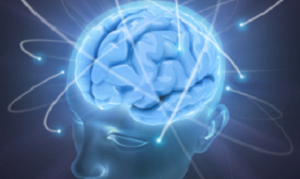Four Things You Can Do to Strengthen Your Brain

The human brain is an organ that, from youth to old age, changes and adapts constantly. This means that, if you stimulate it correctly, it’s possible to improve its cognitive ability, learn new things and to improve your memory. However, to strengthen your brain, it’s also necessary to incorporate some daily habits and exercises.
The truth is that the brain is very similar to any muscle in the body. If you don’t use it and exercise it regularly, it will atrophy and lose its functional capacity. Improving your quality of life is in your hands. Therefore, you can strengthen your brain more easily and you can expand your mind.
What Can You Do to Strengthen Your Brain?
If you want to keep your brain strong, you should keep the following tips in mind. Take note because they can make a big difference!
1. Reduce stress.

The first tip to strengthen your brain is to reduce stress. Keep in mind that many studies have shown that chronic stress can have detrimental effects on this organ.
One of the best ways to avoid stress is by practicing meditation and mindfulness. All you’ll need are 10-20 minutes a day, so it doesn’t take up that much of your time. Additionally, you can include breathing exercises, meditation or yoga.
Discover: What Happens When You do Regular Yoga?
2. Try cognitive training exercises.
The mind stays sharp when your brain’s plasticity is nurtured. This is our brain’s ability to constantly change. This brain capacity can stay the same, and even improve, when we do cognitive training exercises.
In addition, you can return to your studies or even learn a new language. Even just playing board games helps stimulate your brain and your hand-eye coordination. These hobbies provide the ability to effectively promote thinking and coordination.
Other simple things you can do are writing with the opposite hand, manipulating difficult objects, learning new directions, etc.
3. Getting enough rest.

Rest is essential if you want to keep your brain strong. Not getting enough sleep can affect brain tissue loss.
Keep in mind that brain repair and growth take place while we are asleep. Additionally, dreams are very important for those who want to have a strong mind, even for the elderly. That’s because, over the years, melatonin decreases. This is a natural substance that has sleep-regulating properties.
Read this article: 4 Melatonin-Rich Foods
4. Take care your body to take care of your mind.
Lastly, we suggest that if you want to take care of your mind, you have to first start by taking care of your body. This means that if you want to strengthen your brain, you should start by working on your physical health.
That might mean going for more walks, adding healthier foods to your diet or giving up a bad habit, like alcohol or tobacco consumption. All of these things will help your brain health. Of course, some of these things may be more difficult to implement than others, but your brain will thank you.
Research has shown that people who regularly exercise and practice proper nutrition are less susceptible to cognitive diseases that are associated with the aging process.
Remember that strengthening your brain means incorporating good habits into your routine and avoiding a sedentary lifestyle. If you constantly use your brain in new ways and are always challenging yourself, your brain will grow and get stronger.
So, challenge and nourish your brain!
All cited sources were thoroughly reviewed by our team to ensure their quality, reliability, currency, and validity. The bibliography of this article was considered reliable and of academic or scientific accuracy.
- Romero, R, Cueva, H, Barboza, L. La gimnasia cerebral como estrategia para el desarrollo de la creatividad en los estudiantes. Omnia [Internet]. 2014;20(3):80-91. Recuperado de: http://www.redalyc.org/articulo.oa?id=73737091006
- Velásquez Burgos, BM, Remolina de Cleves, N, Calle Márquez, MG. EL CEREBRO QUE APRENDE. Tabula Rasa [Internet]. 2009;(11):329-347. Recuperado de: http://www.redalyc.org/articulo.oa?id=39617332014
-
Ferris, L. T., Williams, J. S., & Shen, C. L. (2007). The effect of acute exercise on serum brain-derived neurotrophic factor levels and cognitive function. Medicine & Science in Sports & Exercise, 39(4), 728-734.
-
Peña, C. J., Kronman, H. G., Walker, D. M., Cates, H. M., Bagot, R. C., Purushothaman, I., … & Goodman, E. (2017). Early life stress confers lifelong stress susceptibility in mice via ventral tegmental area OTX2. Science, 356(6343), 1185-1188.
-
Smith, G. E., Housen, P., Yaffe, K., Ruff, R., Kennison, R. F., Mahncke, H. W., & Zelinski, E. M. (2009). A cognitive training program based on principles of brain plasticity: results from the Improvement in Memory with Plasticity‐based Adaptive Cognitive Training (IMPACT) Study. Journal of the American Geriatrics Society, 57(4), 594-603.
-
Walker, M. P. (2009). The role of sleep in cognition and emotion. Annals of the New York Academy of Sciences, 1156(1), 168-197.
-
Ferris, L. T., Williams, J. S., & Shen, C. L. (2007). The effect of acute exercise on serum brain-derived neurotrophic factor levels and cognitive function. Medicine & Science in Sports & Exercise, 39(4), 728-734.
This text is provided for informational purposes only and does not replace consultation with a professional. If in doubt, consult your specialist.








